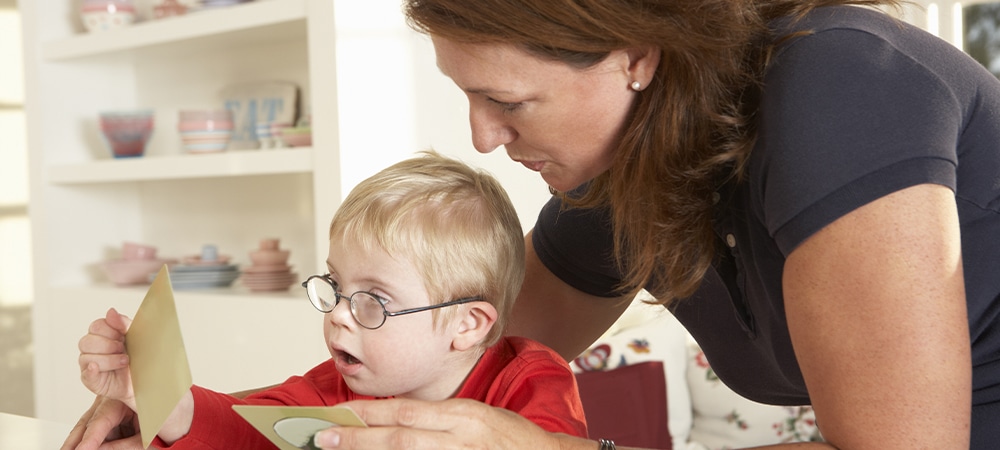Speech and language therapy is a common treatment for children and adults alike. It’s meant for those who struggle with various speech impediments, including physical limitations and psychological issues.
While treatment is smart and often effective at any stage, it’s best to start as early as possible when an individual is still a child. As your child grows, you should always be on the lookout for signs of developmental delays or any other kind of problem. This includes trouble speaking!
Fortunately, there are often signs that can point to a child needing speech therapy. The sooner you see the signs and start therapy, the better it is for your child. Read on to learn more about child speech therapy and what the signs may be.
8 Signs Your Child Needs Speech Therapy
Every child is different and trouble speaking and communicating can present itself in various ways. However, many common signs point to an issue. The items on this list may not be a speech issue in isolation, but if your child is experiencing multiple of these without resolution, they likely need some kind of intervention:
They Have a Limited Vocabulary
Not every child develops on the same timeline, but there are some basic guidelines about where a child should be at any given age. For example, children should have around 20 words by a year and a half. By two, they should have around 50.
If your child is falling significantly behind and isn’t developing an adequate vocabulary, it may point to a speech or language issue.
They Speak with a Stutter
Stuttering is a common issue among children. Stuttering usually begins around two or three years old, when a child starts developing more cohesive and creative dialogue. Stuttering is caused by a variety of things, but it presents in a few ways:
- Getting stuck on a single sound
- Making a funny face while talking
- Experiencing discomfort while trying to form a sentence
These are common signs but are not the only ones – if you notice anything different or funny while your child is speaking, consult a speech therapist.
They Struggle with Certain Sounds
As children develop their speech and language, articulation develops, as well. Your child may struggle with certain sounds, and use only a limited number for all words – entirely leaving out certain letter sounds.
Common difficulties include “R” and “L” sounds, but they can be anything. Articulation is crucial and a speech therapist will take it very seriously.
They Can’t Understand Basic Statements
By the age of around two, toddlers should be able to understand around 300 words and comprehend basic statements and instructions. This includes things like:
- “Do you want a snack?”
- “Bring me that item”
- “Look over there”
- Calling their name
If they don’t respond to things like these or can’t follow the instructions, it’s cause for concern. Comprehension is part of communication and is just as crucial as the ability to speak.
They Struggle Socially
If your child is consistently shy, quiet, and subdued in social situations, it may point to an issue with speech and communication. Especially around peers, children should be able to express themselves and make their wants and needs clear, at least to an extent.
That being said, some children are naturally shy, so you shouldn’t mistake simple shyness for a speech issue. However, if you notice this in conjunction with various other signs, it may be that they are unable to communicate socially despite wanting to.
They Don’t Gesture or Point
By around one year old, children should be pointing to things, waving at people, etc. Some do it less than others, but they should be doing it. A complete lack of this can point to various issues, including with speech.
If you notice this, you should speak with a speech pathologist right away. They can help you determine the cause and exactly what’s going on as this can also be a common sign of Autism Spectrum Disorder. Children with autism commonly struggle with speech as well, which is why specialized therapy exists to address both of these things together.
Their Speech is Hard to Understand
Babies and toddlers are notoriously difficult to understand in the early days of speech development. To an extent, this is perfectly normal as they learn how to communicate and articulate.
However, by around two years old, you should be able to understand them some – about 50 percent of the time. By three years old, this should increase to about 75 percent. If these milestones pass and you’re still struggling to understand most of what they say, this is a cause for concern.
This can be a sign of many different speech and language disorders, so early intervention is crucial to pinpoint what’s going on.
They Aren’t Babbling
This can be a very early sign of a potential speech and language disorder. Children are expected to start “babbling” by around four to six months. This could indicate a hearing issue, but if this is ruled out they may be struggling to make sounds.
It’s never too early to consult with your doctor and/or a speech therapist to at least discuss your concerns. They can help determine what may be going on, and give you some exercises you can work on at home to help with their development.
Early Intervention is Crucial
The sooner you start treating a speech and language disorder in a child, the better. Especially as they start going to daycare and/or school, it’s important to try and keep their development as on track as possible. This way, they can clearly articulate their needs, wants, boundaries, and more to those around them.
This is why it’s important to watch for signs like those listed here. These are some of the most common issues a child may experience if they’re having trouble with speech and language. That said, it’s always better to be safe than sorry if you notice anything that looks or feels off. You can contact us at any time and we can offer guidance in regards to speech therapy and other programs.





